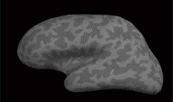 |







|
Research in the lab focuses on the role of sleep in human brain function, especially the impact of sleep (and lack thereof) on: learning and memory, brain plasticity, emotional regulation, clinical mood disorders, aging and brain development. We tackle these questions using a multimodal imaging approach, including functional and structural MRI, neurophysiological, psychophysical and cognitive techniques. The lab currently has two broad research programs that investigate the interaction between 1) Sleep & Memory, and 2) Sleep & Emotion:
 1) Sleep & Memory: Our first main track of research explores the role of sleep in human memory processing, and its relationship to brain plasticity, in healthy and disease populations. We study numerous memory types, from declarative learning systems to procedural skill systems. We are interested in understanding how sleep impacts the different developing steps of human memory, including encoding, consolidation and integration. We continue to explore the role of sleep in preparing key brain regions for the initial formation or encoding of new human memories. Previously, we have shown that sleep deprivation markedly impairs the ability of the human hippocampus to record new facts. We are now interested in how these types of encoding deficits differ according to the emotionality of the material being learned, and also whether sleep loss in the elderly is a causal factor underlying the cognitive hallmark of aging -- poor memory. Additionally, we are investigating the role of sleep in the subsequent offline consolidation of both declarative and procedural memories. These studies investigate whether sleep triggers an overnight, plastic reorganization of memory at a systems-level, thereby enhancing retrieval the following day. Using combined EEG-fMRI technology, we are also examining whether the brain actually reactivates or replays recently learned information during different stages of sleep. Most recently, we have demonstrated that sleep not only consolidates individual memories, but intelligently associates and cross-links new memories together, thereby identifying interconnected relationships -- the basis of creativity. We are currently examining the role of specific sleep-stage cortical oscillations in facilitating these processes. In summary, it is our hope that such neurocognitive studies will bridge the gap between brain and behavior, offering a comprehensive understanding of how sleep modulates learning, memory and brain plasticity. 1) Sleep & Memory: Our first main track of research explores the role of sleep in human memory processing, and its relationship to brain plasticity, in healthy and disease populations. We study numerous memory types, from declarative learning systems to procedural skill systems. We are interested in understanding how sleep impacts the different developing steps of human memory, including encoding, consolidation and integration. We continue to explore the role of sleep in preparing key brain regions for the initial formation or encoding of new human memories. Previously, we have shown that sleep deprivation markedly impairs the ability of the human hippocampus to record new facts. We are now interested in how these types of encoding deficits differ according to the emotionality of the material being learned, and also whether sleep loss in the elderly is a causal factor underlying the cognitive hallmark of aging -- poor memory. Additionally, we are investigating the role of sleep in the subsequent offline consolidation of both declarative and procedural memories. These studies investigate whether sleep triggers an overnight, plastic reorganization of memory at a systems-level, thereby enhancing retrieval the following day. Using combined EEG-fMRI technology, we are also examining whether the brain actually reactivates or replays recently learned information during different stages of sleep. Most recently, we have demonstrated that sleep not only consolidates individual memories, but intelligently associates and cross-links new memories together, thereby identifying interconnected relationships -- the basis of creativity. We are currently examining the role of specific sleep-stage cortical oscillations in facilitating these processes. In summary, it is our hope that such neurocognitive studies will bridge the gap between brain and behavior, offering a comprehensive understanding of how sleep modulates learning, memory and brain plasticity.

2) Sleep & Emotion: Our second research program examines the benefit of sleep, and the impact of a lack thereof, on human emotional brain function. Our recent findings indicate that just one night of sleep loss results in a hyper-limbic brain response to negative affective challenges, and that this amplified amygdala activity is associated with a loss of top-down prefrontal control. Thus, sleep appears to reset the correct brain reactivity to next-day social and emotional challenges by maintaining functional integrity of this prefrontal-amygdala circuit. Our most recent investigations have further demonstrated that the sleep deprived brain appears to be equally excessively reactive to positive, reward stimuli, offering explanatory insights into the link between sleep loss, risk taking, addiction and reward seeking, as well food desire linked to obesity. Building on these findings, we are now examining how sleep and sleep loss may modulate our reaction to and recognition of different types of emotions (e.g. fear, anger, sadness, happiness). Moreover, we have recently demonstrated that sleep, and specifically REM sleep, helps de-potentiate and strip away the difficulty emotion feelings from potentially traumatic memories -- a form of overnight therapy. As a result, sleep appears to adaptively help remember the details of salient experiences, but divorce (and thus forget) the affective charge that was initially associated with the memory at the time of the event. Building on this work, we are now beginning to translationally examine several clinical populations that exhibit co-occurring sleep loss and emotional dysfunction. We hope this program of combined basic and clinical research will provide key insights into the pervasive relationship between sleep disruption and mood disorders (e.g. major depression, PTSD), which instead of being viewed as co-occurring, may in fact be more causally related.
|
|
|
